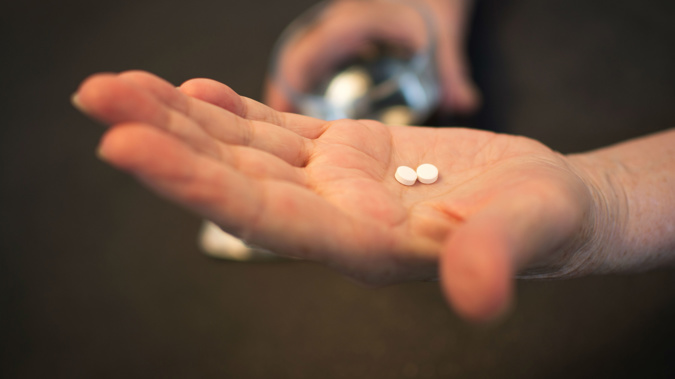
I was talking with a medical expert yesterday, a specialist who's spent the best part of 50 years immersed in our health system.
You can imagine in that time that he's seen a lot of change in the Nation's health, in the way we administer health care in this country and the societal changes that have triggered some of our health epidemics, including obesity and the decline in mental health.
I was speaking to him about the lead story in the Herald yesterday about the new government's plans for suicide prevention. Around 606 people took their lives in this country in the past year, 606 people.
And the doctor I was speaking to was shaking his head.
He said we're getting it all wrong. He said we're opting for a quick fix solution and that's led to a society that is over-medicated. Instead of addressing the issues that are leading to depression, we're using drugs to block them. It's easier. Quicker, he said. And yet he said it doesn't solve the problem.
He said there was a big difference between medicating for clinical depression, and medicating people because they're going through a bad patch. He said the ease with which we prescribe anti-depressants, anti-anxiety drugs and sleeping pills today has led to a society that is relying on prescription drugs to get through everyday life.
These are his words, not mine. He's the medical expert, I was simply the observer but I thought the points he made were interesting.
I asked him what the solution was and he said "get outside. People need to move more".
He said that if doctors, in the first instance, prescribed a 15 to 30 minute walk a day, he said that would improve a lot of people's outlook on life. Not everyone's, but a lot of people's.
He said we're not designed to spend most of our days inactive in a house or in an office. Move your body and it will move and improve your mind, he said. In some cases it was as simple as that.
And he felt the culture of being active and getting outdoors had to begin very early on in childhood. The days of having the quarter acre section out the back for the kids to rip around on were gone. Get kids active, and keep them moving. Get them away from screens and digital devices and get them moving and they'll adopt an attitude of exercise for the rest of their lives.
He also felt that our education had become what he called 'feminised'.
Boys need to be boys, he said, and remember it's young men who are most likely to take their own lives in this country.
He said we need to attract more men into the teaching profession to help engage young boys and to encourage some of the more physically robust activities that boys, in particular, need.
And while the focus still needed to be on the academic side of education, he felt there should be a greater emphasis on physical education. Kids should be moving or playing sport every day, he said.
As I said earlier, he wasn't suggesting the answer to all of our mental health issues was being more active, but he felt that part of the western world's reliance on prescription drugs had come about because we're stuck indoors and we've institutionalised ourselves.
He said in many cases the first thing a doctor should prescribe is a pair of walking shoes and not a trip to the chemist.
Where to get help:
If you are worried about your or someone else's mental health, the best place to get help is your GP or local mental health provider. However, if you or someone else is in danger or endangering others, call police immediately on 111.
Need to talk? Free call or text 1737 any time for support from a trained counsellor.
Or if you need to talk to someone else:
Lifeline – 0800 543 354
Suicide Crisis Helpline – 0508 828 865 (0508 TAUTOKO)
Youthline – 0800 376 633 or free text 234
Kidsline – 0800 54 37 54 (for under 18s)
What's Up – 0800 942 8787 (for 5–18 year olds 1pm–10pm weekdays and 3pm–10pm weekends)
Depression Helpline – 0800 111 757 or free text 4202
Samaritans – 0800 726 666
OUTLine NZ – 0800 688 5463
Healthline – 0800 611 116
Take your Radio, Podcasts and Music with you








